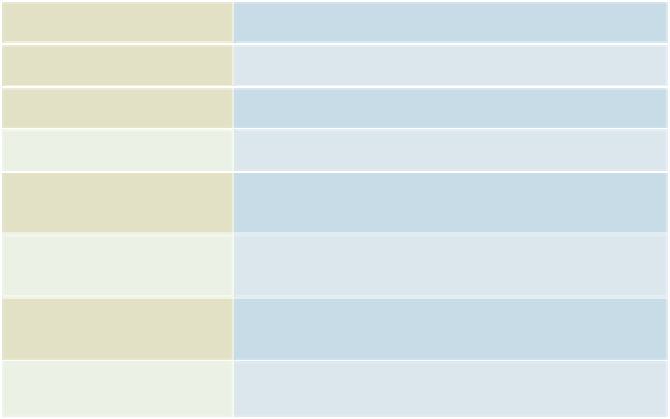Information Technology Reference
In-Depth Information
Table 7.4
Keywords and Operator
Entered
Search Engine Interpretation
Using Operators in Google Web
Searches
vacation Hawaii
The words “vacation” and “Hawaii”
Maui OR Hawaii
Either the word “Maui” or the word “Hawaii”
"To each his own"
The exact phrase “To each his own”
virus -computer
The word virus, but not the word computer
Star Wars Episode +I
The movie title “Star Wars Episode”, including
the Roman numeral I
~auto loan
Loan information for both the word “auto” and
its synonyms, such as “truck” and “car”
define:computer
Definitions of the word “computer” from around
the Web
red * blue
The words “red” and “blue” separated by one or
more words
Search engines scour the Web with bots (automated programs) called spiders that follow
all Web links in an attempt to catalog every Web page by topic. The process is called Web
crawling, and due to the ever-changing nature of the Web, it is a job that never ends. Google
maintains over four billion indexed Web pages in a database on 30 clusters of up to 2,000
computers, each totaling over 30 petabytes of data.
One of the challenges of Web crawling is determining which of the words on any given
Web page describe its topic. Different search engines use different methods. Methods include
counting word occurrences within the Web page, evaluating nouns and verbs in the page's
title and subtitle, using keywords provided by the page's author in a meta tag, and evaluating
the words used in links to the page from other pages. Once the search engine has a reasonable
idea of a page's topic, it records the URL, page title, and associated information and keywords
in a database.
After building the search database, the next challenge facing a search engine is to deter-
mine which of the hundreds or thousands of Web pages associated with a particular keyword
are most useful. The method of ranking Web pages from most relevant to least differs from
search engine to search engine. Google uses a popularity contest approach. Web pages that
are referenced from other Web pages are ranked higher than those that are not. Each reference
is considered a vote for the referenced page. The more votes a Web page gets, the higher its
rank. References from higher-ranked pages weigh more heavily than those from lower-
ranked pages.
Today's heated competition in the search engine market is pressing the big players to
expand their services. Table 7.5 lists some of the newer search engine services available and
being developed.
Search engines have become important to businesses as a tool to drive visitors to the
business' Web site. Many businesses invest in search engine optimization (SEO)—a process
for driving traffic to a Web site by using techniques that improve the site's ranking in search
results. SEO is based on the understanding that Web page links listed on the first page of
search results, as high on the list as possible, have a far greater chance of being clicked. SEO
professionals study the algorithms employed by search engines, altering the Web page con-
tents and other variables to improve the page's chance of being ranked number one.
14
SEO has become a valuable marketing tool. Tax software company TaxEngine.com hired
an SEO company to improve its visibility and allow it to compete with larger companies such
as H&R Block and TurboTax. The SEO approach saved the company 50 percent in mar-
keting costs over the previous year while increasing its business. The SEO optimized the
company's hit results for over 100 highly competitive search keywords.
15
In addition to search engines, you can use other Internet sites to research information.
For example,
www.findarticles.com
contains millions of articles on a variety of topics, in-
cluding business and finance, health and fitness, sports, and reference and education. You













